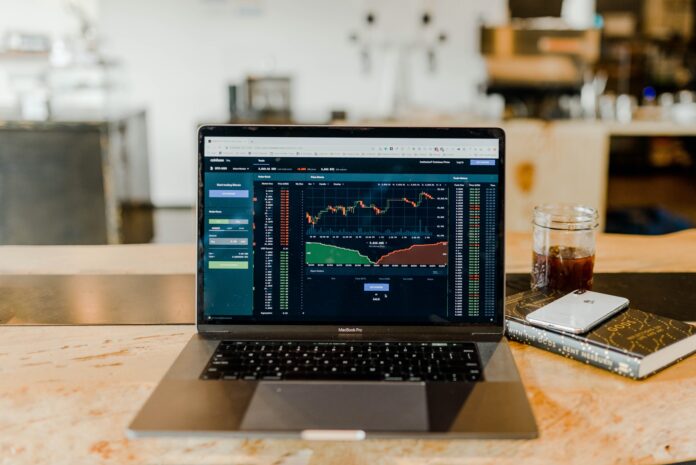
Understanding tax is not easy. There are countless sections, and each comes with a set of rules and guidelines determined by the IRS. Whenever you buy and sell cryptocurrency, you are subject to pay tax on capital gains.
As per IRS guidelines, cryptocurrency is a property and not a currency for tax purposes. The rules are yet not clear regarding crypto, but several rules have been implemented, which have been discussed below.
Talking about cryptocurrency, there is an easy way to earn daily profits from trading in bitcoins. If you are interested in real-time Bitcoin trading and want to reward yourself with enormous profits, then complete the registration process and make your free trading account. For more information, go url and start pulling in profits from trading in bitcoins.
Tax Rules Traders Need to know before Selling or Buying Crypto
1. Buying and selling of crypto and making short term and long term gains

The first tax rule traders need to know is that you must keep a note of the amount of the cryptocurrency you buy and the amount of cryptocurrency you sell or exchange separately. If you make a gain, whether short term or long term, on selling or exchanging cryptocurrency, you are subject to pay tax on any gain you make from selling or exchanging cryptocurrency.
The rate of tax is determined by the period you hold the cryptocurrency. The rate of tax varies depending on the income of a person and their marital status.
2. For exchange between one cryptocurrency with another
The next tax rule you need to remember is for exchange between one cryptocurrency with another. The gains made by exchanging one cryptocurrency for another is subject to tax.
The rate of tax you are subject to pay on gains remains the same irrespective of the period you held the crypto.
Whether you hold a cryptocurrency for a year or a minute before trading it with other cryptocurrencies does not change the rate of tax, and it is the same for everyone.
3. Using crypto to make payments for goods or services

The third rule is related to making payments for goods and services. When you make payments in cryptocurrency, you are taxable on the increased value of the crypto from the time you acquired the cryptocurrency till the time you make payments. Similarly, every time you exchange crypto for goods and services, you are subject to pay tax.
Now, the rate of tax is different based on short term or long term gains. If you held the cryptocurrency for less than a year, it would be short term capital gains. You will be taxed at different rates, and if you held the cryptocurrency for more than a year, it would be long term capital gains, and you will be subject to a different tax rate.
4. Loss from cryptocurrency
The fourth rule covers crypto losses you incur during buying and selling of cryptocurrency. If you sell cryptocurrency at a loss, exchanging one crypto for another or using it to make payments for goods and services at a loss, then you are subjected to a crypto tax loss.
A crypto loss from trading or exchange cryptocurrency can be used to offset other crypto gains. To be specific short term losses can only be used to offset short term gains, and long term losses can only be used to offset long term gains. If the loss from cryptocurrency surpasses gains from cryptocurrency, then the extra loss can be used to offset gains from a stock portfolio or a mutual funds portfolio.
5. Crypto forks and airdrops

As per IRS guidelines, forks and airdrops can occur on a blockchain and are subject to tax. Well, there are several types of forks that may occur in the blockchain, but you are only subject to pay tax if a new coin is a result of a hard fork. A hard fork makes invalid transactions and blocks valid. The tax is charged on these new coins and is considered as an ordinary income for a taxpayer.
Similarly, crypto airdrops are the free distribution of crypto coins and tokens to existing crypto holders by the companies. These are given for promotional purposes, but the crypto holders are subject to pay tax on these free coins.
6. Crypto mining and staking is considered ordinary income
Crypto mining and staking is also considered as ordinary income and is subject to pay tax at regular rates. Crypto mining is done to verify the transaction in the blockchain by solving the blocks which reward you with cryptocurrency to provide these services. The cryptocurrency received from mining and staking is an ordinary income and taxed at normal rates like other income.
For tax purposes, the value of the crypto when received is considered, and if the value of the cryptocurrency increases by that time it is sold or exchanged, then tax is paid on short term or long term gains based on the time you held the crypto.
7. Recordkeeping and reporting is required

As per IRS guidelines, you are required to keep a record and report gains and losses from cryptocurrency on form 8949. There are several recordkeeping and tracking apps to keep a record of every trading or exchange of cryptocurrency and help taxpayers to pay their taxes hassle-free.
You have to fill your personal 1040 tax return in Form 8949. Coinbase, PayPal, Binance.us, and a few others are the reputed crypto exchanges and help you to keep track and report crypto transactions and trading directly to the IRS. You still must pay your taxes even if your crypto exchange doesn’t report to the IRS.
Final Words
The taxation of cryptocurrency is complicated and overwhelming. You should have a diligent record of buying, selling and exchanging crypto you make for tax purposes. These are the tax rules you must know before you trade in cryptocurrency. You can even use Roth IRA to obtain tax-free gains on crypto profits at the time of retirement.
Keeping all following the IRS guidelines regarding tax rules related to cryptocurrency, you can pay your taxes on time without any mistakes.








